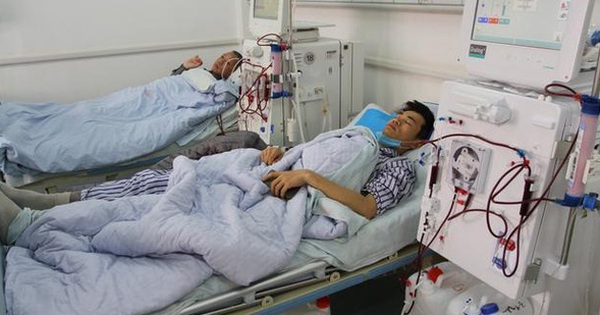When should I go to the doctor if I still have a cough after recovering from Covid-19?
People who have been infected with Covid-19 should go to the doctor if they cough more, have bloody sputum or some symptoms such as shortness of breath, chest pain appear.
Cough is a common symptom of Covid-19 patients. Some people may even have a cough that lasts for weeks or months after a negative test result. About 2.5% of people who have been infected with Covid-19 still have a cough a year later.
Coughing incessantly will impair your ability to work, cost you money on medicine, and make you limit your contact because you don’t want others to be afraid of you spreading Covid-19.

Illustration: Times of India
The cause of the cough when infected with Covid-19
It is not surprising that Covid-19 causes a cough, as the SARS-CoV-2 virus affects the respiratory tract, from the nose to the lungs.
Coughing is one of the body’s ways of getting rid of unwanted irritants like viruses, dust, and mucus. When something strange is detected in the airways, a reflex will be activated to induce coughing, helping to clear the irritant out.
Although this is an effective defense mechanism, it also causes the SARS-CoV-2 virus to spread. That is one of the reasons why this virus is traveling around the world so quickly.
Why does the cough persist even though it’s negative?
Inflammation is a defensive process our immune system uses to fight Covid-19. Inflamed tissues swell and exudate, which is likely to persist even after the virus has disappeared.
The four main reasons for a persistent cough are all related to inflammation:
If the upper airways (nose and sinuses) become inflamed, the resulting fluid will flow down the back of the throat. This causes the patient to feel the need to clear the throat, swallow, and/or cough.
If the lungs and lower respiratory tract are affected, coughing is the body’s way of trying to get rid of fluid. Sometimes there is not much fluid, so the patient has a dry cough because the lung tissue is still swollen, causing a cough.
Nerve pathways can be a hiding place for inflammation. Thus, the cough involves the central (brain) and/or peripheral (nerve) systems, not the respiratory tissues themselves.
A less common but more serious cause is scarring of lung tissue from inflammation, a condition known as interstitial lung disease.
People can experience a range of post-Covid-19 symptoms, including a cough, regardless of the severity of the illness. Some patients are not too tired during the Covid-19 infection, but the cough after negative makes them exhausted.
Time to visit a doctor
We need to be careful not to assume cough is a post-Covid-19 symptom and overlook other serious causes of chronic cough.
One thing to keep in mind is that a patient may have a secondary bacterial infection with the following signs:
– Cough sounds different, more often
– More phlegm, blood
– New symptoms such as fever, chest pain, fast heartbeat or, worse, difficulty breathing.
Other serious underlying illnesses can cause a chronic cough, including heart failure and lung cancer. So if you are in doubt about the cause of your cough, get yourself checked out.
An Yen (According to ABC)
at Blogtuan.info – Source: vietnamnet.vn – Read the original article here



